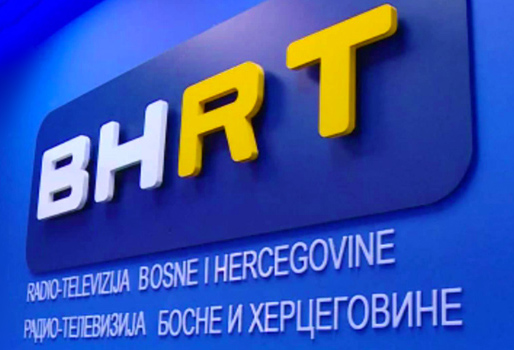
BHRT, the Bosnian national television, postponed the suspension of broadcasts expected since June 30th, but financial difficulties are yet to be solved
Bosnian authorities have very little time if they want to save BHRT, the only national television network, from shutdown. After June 30th, in fact, the broadcaster was meant to suspended transmitting – as anticipated on May 31st by the network Board. In a press release issued yesterday, the Board of BHRT announced a moratorium on the suspension of the production and transmission of programs. The decision was adopted in consideration of the commitments with Euro 2016 for the airing of the European Football Championships, and out of respect for the annual commemoration of the Srebrenica genocide. But this suspension is provisional: unless stable funding is secured, the main channel in Bosnia and Herzegovina will be blacked out, leaving the country without its public national television.
Such a drastic measure was announced by Director Belmin Karamehmedović as a last resort, after the government failed for months to find a solution to BHRT's chronic financial issues.
For years, the network has struggled financially – on the one hand, due to Bosnian citizens' lack of committment to paying the fee; on the other hand, because the law on the public broadcasting system was never really implemented.
Financial breakdown
Currently, the main source of funding for BHRT are the fees, approximately four Euros per year, that citizens – in principle – are supposed to pay through their phone bill.
Over the years, however, such revenues have been dropping – partly because fewer and fewer people own a landline, but also because more and more refuse to pay: only 50% of citizens do, according to Radio Slobodna Evropa .
Evasion has become a serious problem for the public service, which also includes a television for the Republika Srpska (RTRS) and one for the Federation of Bosnia and Herzegovina (FTV). In their refusal, the citizens of Bosnia and Herzegovina are also supported by political parties – especially Croatian HDZBiH, which supports the right of Bosnian Croats not to pay until there is a channel in Croatian language – and the opposition in the Republika Srpska, which has repeatedly called for boycotts of RTRS, seen (not without reason) as the megaphone of Milorad Dodik's government.
Advertising revenues
Every year, evasion increases by about two million Euros, to the detriment of BHRT. Another issue lies in the non implementation of the law on public television in Bosnia and Herzegovina.
The law, which dates back to 2005, established for the three public broadcasters to constitute a single company, which would collect the revenues from fees and advertising and then split them between the three channels – 50% to BHRT and 25% each to RTRS and FTV.
The company, however, has never been created due to the obstruction of Bosnian politicians. As a result, RTRS and FTV – that collect the majority of advertising and fee revenues – have never actually paid BHRT its share.
This resulted in several million Euros of debt. "The total debt that RTRS and FTV have accrued in favour of our network amounts to 12,77 million Euros", complained on May 31st the BHRT Board, in the press release announcing the decision to suspend broadcasting. "If a solution to ensure the funding of our network and to deal with the debts of RTRS and FTV is not found by June 30th, broadcasts will be temporarily interrupted", anticipated to Bosnian media Esad Gotovuša, a member of the BHRT board.
The requests
What BHRT asks is to include the fee in electricity bills, a solution recently adopted in Italy. As of now, however, the law on public service under discussion sets milder measures: the extension of the compulsory payment of the fee through the cost of pay TV and the creation of public funds at the level of the two entities that should be used to support the three Bosnian public stations.
"We are very grateful to the MPs who have made an effort to approve this law", said Karamehmedović, who defined the reform "a light at the end of the tunnel". The draft was approved by the House of Representatives a few weeks ago and it is expected to be submitted shortly to the House of Peoples.
Although the threat to suspend broadcasts remains in force, Karamehmedović seemed to soften his stance in a recent interview with Klix. The suspension, if confirmed, will only take place after the end of the European football championships, of which BHRT has managed to secure the rights at the last moment. "We will do everything to ensure the broadcasting of the Europeans and the news until the end of the competition, and we must not forget that the day after the final there is the commemoration of the Srebrenica genocide", said Karamehmedović.
The decision of the Board is also opposed by the employees of BHRT who, through their Union, have termed the decision to suspend the broadcasts illegal. "No one has the right to cancel programmes except the union, and only within the framework of the labour law", reads the statement approved by the union after the announcement of the Board, which also demands the Board's resignation "for making decisions that are contrary to the law".
This publication has been produced within the project European Centre for Press and Media Freedom, co-funded by the European Commission. The contents of this publication are the sole responsibility of Osservatorio Balcani e Caucaso and its partners and can in no way be taken to reflect the views of the European Union. The project's page








